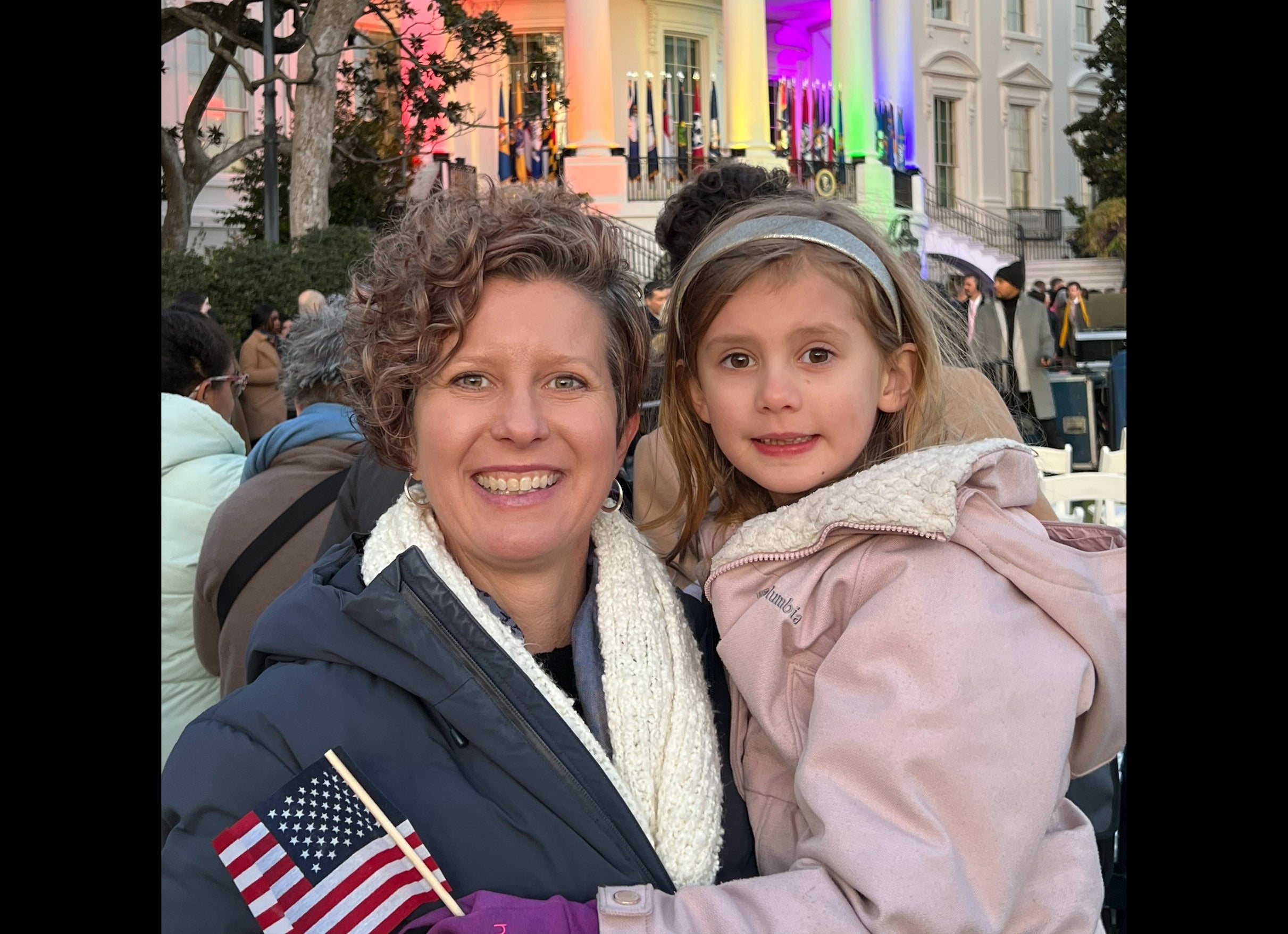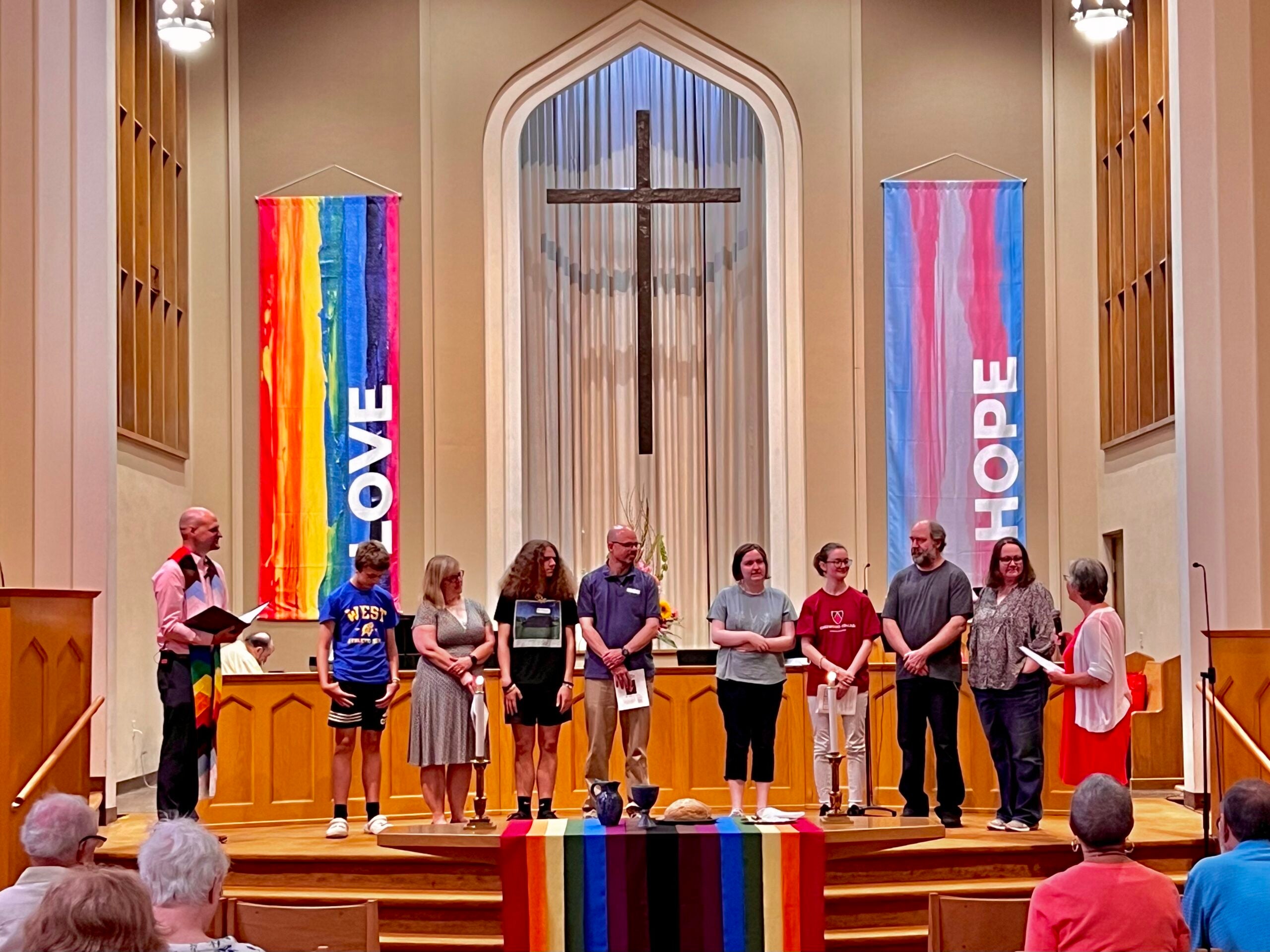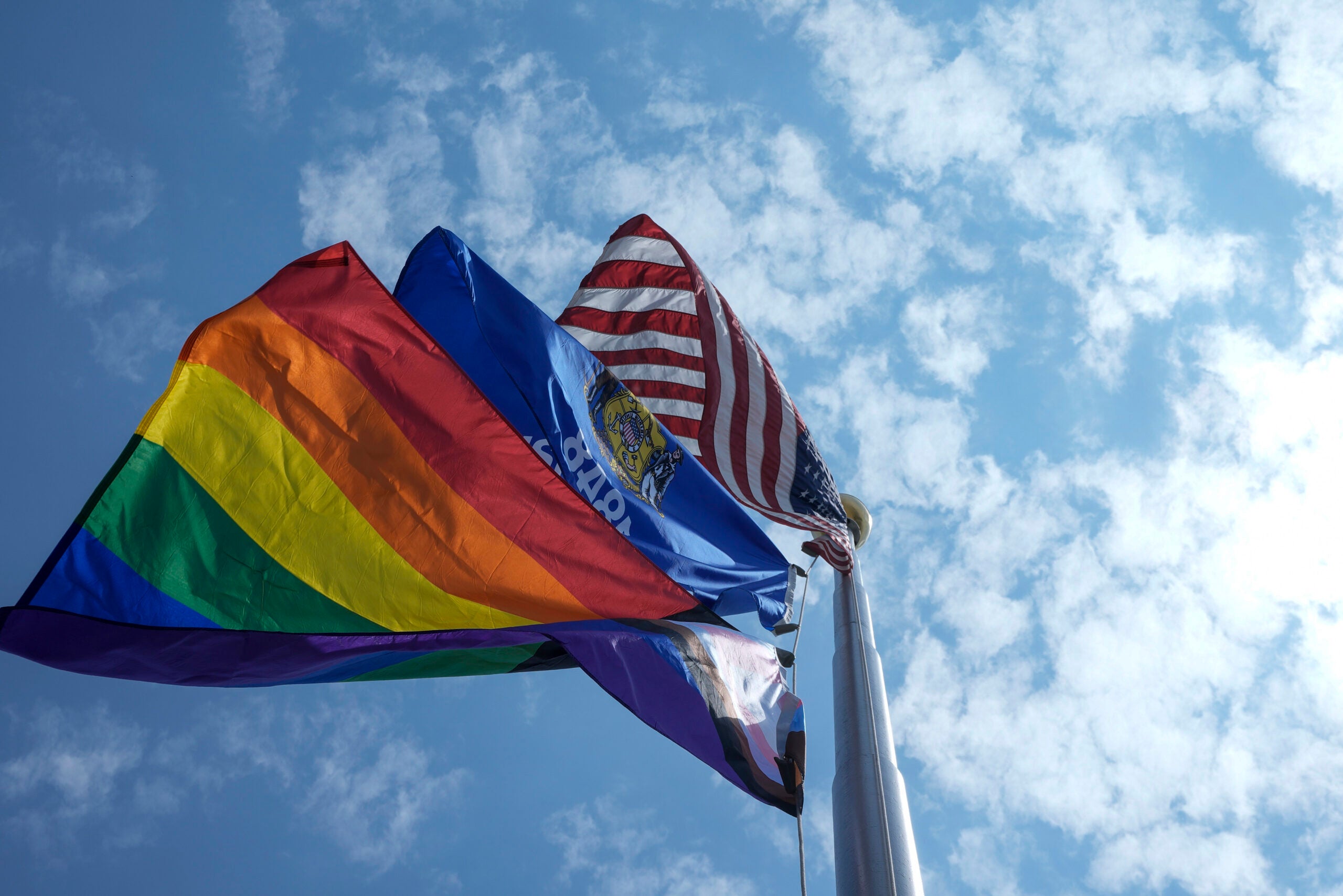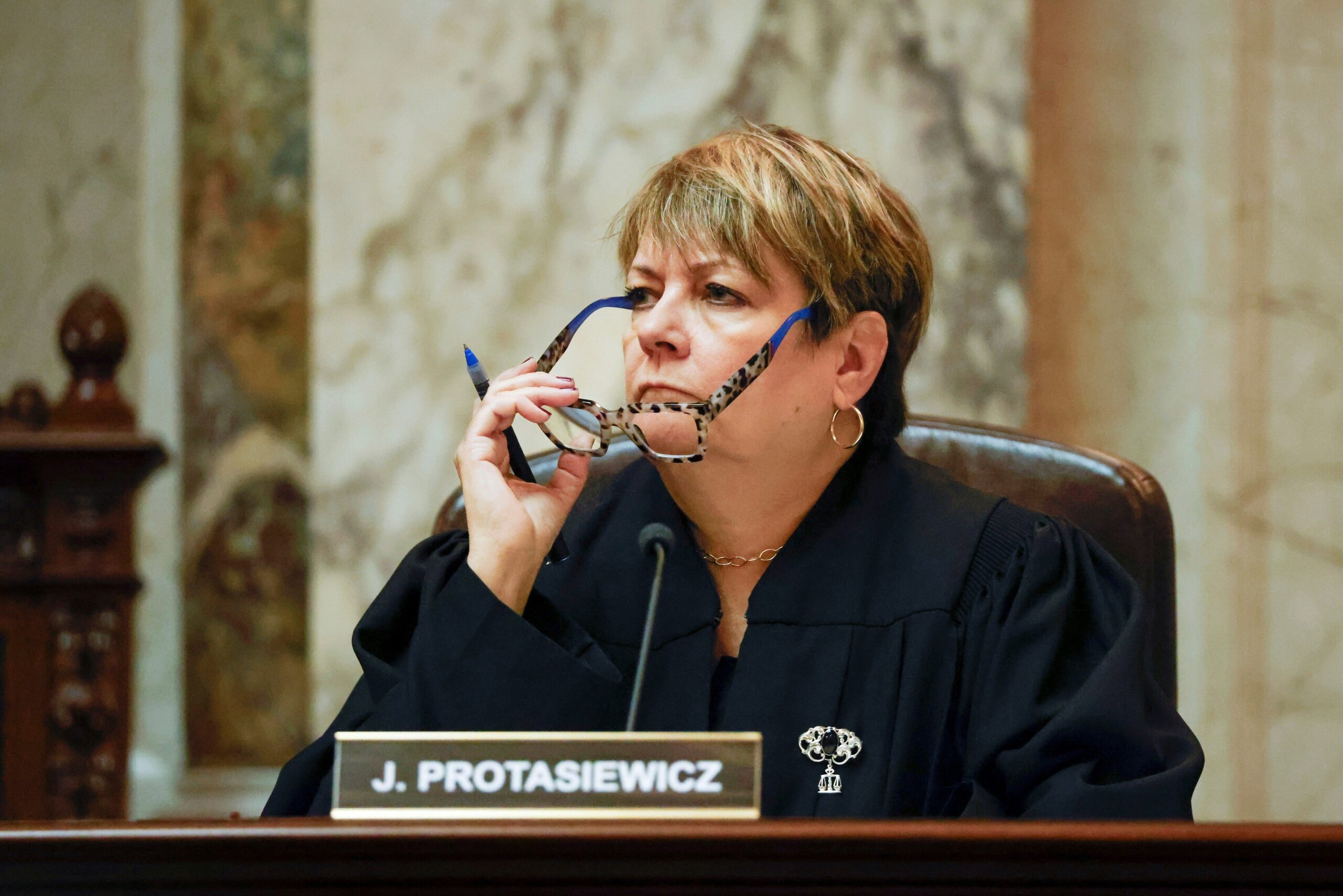Several Wisconsinites celebrated at the White House Tuesday when President Joe Biden signed the Respect for Marriage Act into law.
The legislation codifies same-sex and interracial marriages, a move that many supporters felt was necessary after the U.S. Supreme Court overturned Roe v. Wade earlier this year.
Shelbi Day is chief policy officer for Family Equality, a national organization working for equality for LGBTQ+ people and their families. Her organization worked throughout the summer to help get the Respect for Marriage Act passed and she received an invitation from the White House to attend the signing ceremony.
News with a little more humanity
WPR’s “Wisconsin Today” newsletter keeps you connected to the state you love without feeling overwhelmed. No paywall. No agenda. No corporate filter.
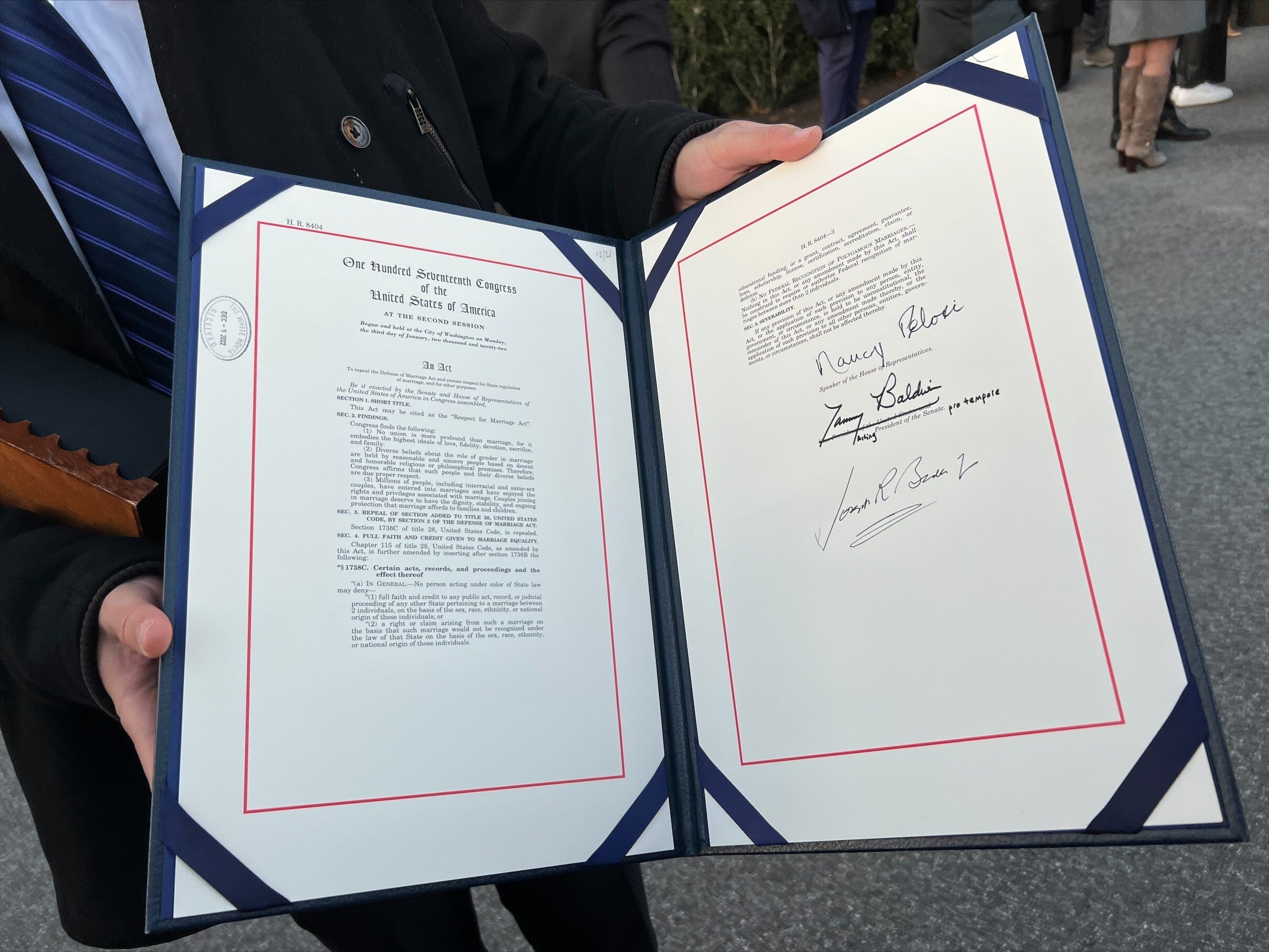
“Personally and professionally, it meant so much to me not only to be invited but to be able to go,” said Day, who is married to a woman. “I also took my 7-year-old daughter with me, which was quite special to be able to share that with her.”
Although it was a long day for a child, Day said her daughter was clearly excited to be there, asking her to take photos to share with her second grade class. She said being a part of the day will likely mean a lot more to her when she gets older and fully understands the importance of the new law for their family.
“What she did hear is that our family matters and that even the president was saying that our family matters, that my and my wife’s marriage matters,” Day said. “And I think she could just feel the joy and energy in the crowd.”
Day said the event was attended by many families and advocates that have long fought for marriage equality. In addition to another Wisconsinite working for Family Equality, Madison Mayor Satya Rhodes-Conway was at the signing.
“This law and the love it defends will strike a blow against hate” – @POTUS
— Mayor Satya Rhodes-Conway (@SatyaForMadison) December 14, 2022
It was an honor to witness the signing of the Respect for Marriage Act! pic.twitter.com/LUZIuGQXwi
Reflecting back on the event, Day said she felt a “huge sense of relief” after working on marriage equality and other LGBTQ+ issues for more than 15 years.
“Personally, as someone who has a wife and two young kids living in Wisconsin, it was such a tremendous relief to know that no matter what the Supreme Court may do, that my marriage will be recognized by the federal government and will have to be recognized by the state of Wisconsin,” Day said. “It just felt like I could breathe.”
But Day said the legislation also brought some frustration that her community is once again fighting to protect their rights despite the Supreme Court’s 2015 ruling on Obergefell v. Hodges that guaranteed marriage equality.
In a concurring opinion to the U.S. Supreme Court’s Dobbs v. Jackson ruling that overturned federal abortion rights, conservative Justice Clarence Thomas suggested that the court’s gay marriage ruling was “demonstrably erroneous.”
If the Supreme Court were to overturn the Obergefell decision, the Respect for Marriage Act only guarantees federal recognition of same-sex marriages and requires states to recognize them. But state laws banning same-sex marriages would go back into effect.
Wisconsin has both a constitutional amendment and a statute banning the marriage of same-sex couples, along with 24 other states, according to the National Conference of State Legislatures.
“We need to do work to clean that up, to get rid of those statutes and constitutional bans, so that where the states are reflects where the federal government is and also where public opinion is,” Day said. “We know in recently polling that 71 percent of Americans support … the freedom for our families to be able to marry, and that upwards of 90 percent of Americans support interracial marriage.”
Day said she’s hopeful that work will move forward given the bipartisan support in Congress for the Respect for Marriage Act.
A majority of Wisconsin’s congressional delegation supported the legislation, including Republican U.S. Reps. Bryan Steil of Janesville and Mike Gallagher of Green Bay.
Wisconsin Public Radio, © Copyright 2025, Board of Regents of the University of Wisconsin System and Wisconsin Educational Communications Board.

